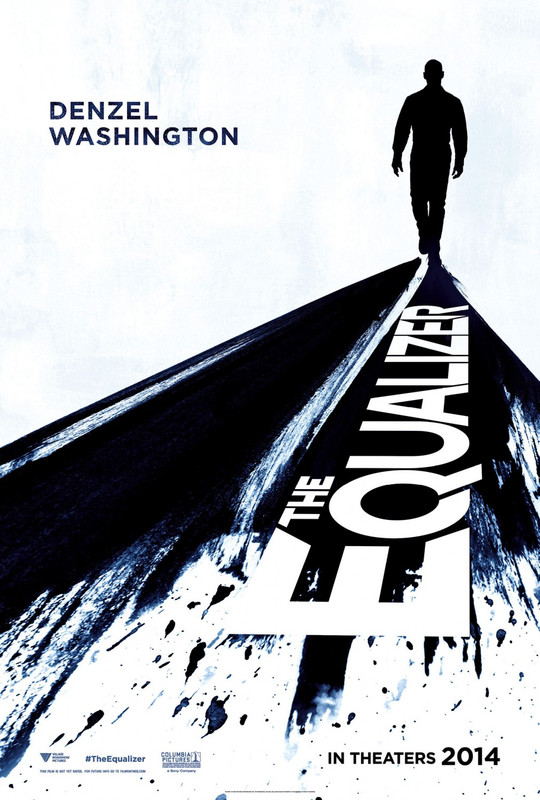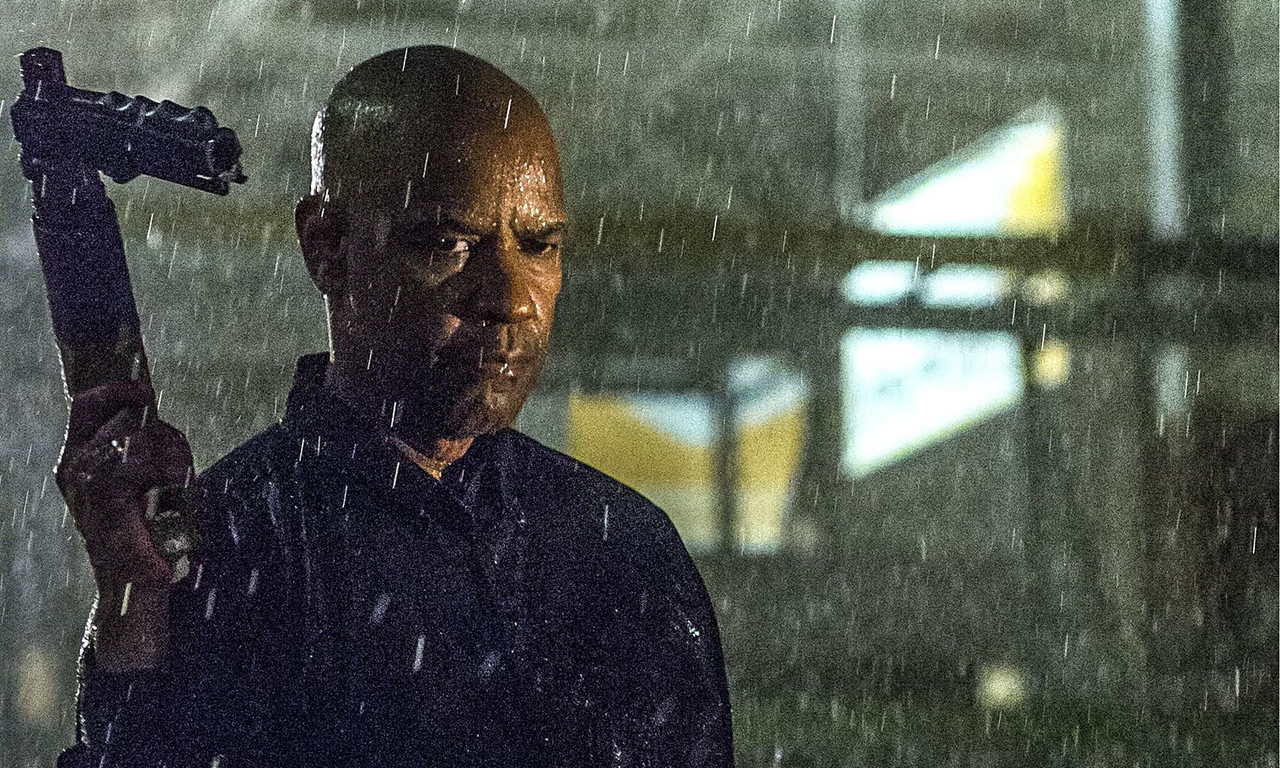Dir: Antoine Fuqua
I read a piece recently that suggested that the anti-hero is, at least in mainstream cinema, dead. If it has not been done already then The Equalizer, taking its place among Hollywood's new vigilante films, hammers the final nail into the lid of the coffin of the anti-hero. There's nothing wrong, to my mind, with getting an audience to cheer a vigilante on in the course of a film, provided that you also ask that audience to think about what they are cheering and why. The Equalizer doesn't do these things.
The thing that The Equalizer would most like to remind us of is not, I'm reliably informed, the Edward Woodward TV series from which it takes its title. Rather the thing it most calls to mind is Taxi Driver. It's a dangerous game to play, using the iconography of a clearly unstable vigilante (in this case Denzel Washington as Robert McCall) going on a rampage of violence against men who have, or are connected to people who have, hurt an underage hooker (Chloe Grace Moretz) who eats at the same diner as he does. That's only the setup, but still, calling that film to mind at all sets a ridiculously high bar and The Equalizer misses it by margins that are initially comical, then just sad.
The Equalizer certainly doesn't rush into action, in fact a leisurely first half hour of character building see the film at its best. Denzel Washington is a fine actor and while he's hardly stretched here he builds a foundation that you can believe in as Robert McCall; who seems to be a simple, decent, guy with a strong moral code that he can't see reflected around him. Chloe Grace Moretz is equally talented, and won her role over several actresses in their mid-twenties, apparently aceing the audition so completely that she forced a rewrite. The connection between this odd couple, who don't sleep and end up at the same diner night after night, is well founded and provides a strong motivation for the film's initial violence. It's after this, as the film enters its second and third acts, that the wheels begin to come off.
Having set up a down to earth foundation the film begins to become more and more over the top, but not in a way that's any fun, instead it just begins to lead you to question many of the premises of the screenplay. McCall would be interesting as an anti-hero, but as the film goes on it becomes clear that it has no interest in either positioning him in this way or looking more deeply at the morals of what he's doing. It's tough, for me at least, to invest in a morally unambiguous portrayal of a man whose violence only escalates from an initial quadruple murder, however nasty the nominal villains of the piece are. Initially McCall's motives are at least somewhat honourable, even if the subtraction involved in reaching the possible title of 'The Equalizer' is a tad extreme. Then the stakes are raised, McCall takes on, essentially, the entire Russian mob (and assorted other bastards, for whom he and his friends from work seem to suddenly become magnets) and it's here that the problems set in. What personal stakes there were have long since passed and the initially introspective nature of McCall suggests that he might find himself at least somewhat troubled at what he has to do to defend himself from the people trying to kill him, but if he does we never see a second of it. It's almost as if writer Richard Wenk and director Antoine Fuqua thought that this might show weakness, and that this would be a bad, rather than an interesting, thing.
The problem is that the increasingly lunkheaded direction the film goes in during its second and third acts goes against the tone it sets in the first. There's nothing inherently wrong with a braindead, extremely violent, vigilante movie, but it has to be fun. Commando, for example, features no moral questioning, it's too busy shooting a rocket launcher at a Police van and then coming up with a quip. The thing is, Commando is always that movie, it has its tongue stuck firmly in its cheek, so you never feel bad for having fun and giggling at the absurd body count. The Equalizer, on the other hand, starts out wanting to be much grittier, but can't ultimately decide what movie it should be. The major villain (Marton Csokas) is a bit too much of a cartoon to be scary, but the violence is too vicious to work in a cartoon fashion (or as a 15 certificate, despite some obvious BBFC cuts for that category). He, and every other character, is also a prop; a cardboard cutout designed to move the plot forward and only allowed to exist in the most cliché form possible. This, sadly, also ends up being true of Moretz, who pops up at the end of the film after a long absence, in a scene so stock that even her make up seems hackneyed.
The other problem with the characterisation is that characters are treated as either morally black or white. Washington is the White Knight (with a lot of apparently consequence free blood on his sword). This is how the film contributes to the death of the anti-hero: it refuses to acknowledge anything remotely anti about McCall's heroism. Moretz and the characters McCall works with are blameless innocents, everyone else is a villain; bastardly at best, homicidal at (more general) worst. This makes for a pretty boring watch, because everything happens as if scripted by a very basic character generating program, which has created stock figures and dialogue as placeholders until the actual writer comes and fills in the details, it just seems that Wenk forgot this intermediate step.
The action is okay, save for a very silly and overblown sequence that seems to have been dropped in purely to meet the big fuckoff explosion quota. The choreography is reasonably fluent, and Washington still has speed and impact enough that his ability to take down pretty much any opponent doesn't strain credulity too far. However, despite its brutality, the action does still seem hamstrung by the pursuit of a 15 certificate, a moment involving a shot glass is edited into nonsense and, whether it was BBFC or Antoine Fuqua who made the choice, several scenes are so dark that they're tough to see, and thus tough to get caught up in. This is a particular problem with the climax, which finds inventive uses for things in the hardware store where McCall works, but the impact, especially of a nasty garotting, is muted by the lack of light.
The Equalizer is a film that needed to choose an identity; serious vigilante film or nasty action packed vengeance trip. Even if it combined those two things well, that would be fine, but instead it's marooned between the two. Denzel Washington works hard, and gives a performance much too good for a film this tediously unconsidered, but he can't rescue it from an uncertain tone that is sometimes nasty, but in all the wrong ways.
★★
★★



No comments:
Post a Comment